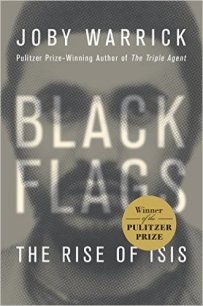
Parting the Waters: America in the King Years 1954–63 by Taylor Branch
Rating: ✮✮✮✮✮
Genre: History
Review:
After six long months of slow progress, I finally finished the first installment in Taylor Branch’s “America in the King Years” trilogy, Parting the Waters. I’m so glad I buckled down and finally got through it because it was a truly eye-opening book and I learned a lot. If you’re worried that my rating is based solely on that, don’t! It’s also extremely well-written and hard to want to put down, though at points your brain (and, if you’ve bought the physical version, your hands/arms) will probably need a break.
This last bit is probably the reason it took six months to get through for me (plus the pregnancy fatigue). I (perhaps stupidly) bought the paperback, which is massive and extremely heavy. I still have residual wrist pain from reading it, and because of this, I highly recommend trying an e-book version instead, though I can’t comment on the formatting of the e-book. Regardless, your wrists will thank you for not trying to tough out the 900+ page tome in paper.
On to the content — this book covers Martin Luther King Jr.’s early career, up through the end of 1963 (just after the march on Washington and JFK’s assassination). It’s a lot of time to get through, but so much happens. We see Rosa Parks and the Montgomery Bus Boycott, the Freedom Rides, Brown vs. Board of Education, various marches and sit-ins throughout Georgia, Mississippi, and Alabama, and the march on Washington, including MLK’s famous “I Have a Dream” speech. We get to see some of the behind-the-scenes conversations between civil rights leaders, activists, politicians, and attorneys, including both JFK and Robert Kennedy, who was the Attorney General at the time.
If you’re an American who attended a public school of average caliber (like me), you might not have learned much in depth about the Civil Rights Movement. I remember learning the names of some people, like Rosa Parks and Martin Luther King, but not much else. It’s all kind of fuzzy, and I think a few big events were definitely the focus every time Black History Month rolled around. Since then, I haven’t dedicated much of my educational time to learning about the CRM, since I mostly prefer reading about European and especially Russian history. Now, after reading this book, I’m eager to read book two in the trilogy to find out more about it. I don’t think I’d realized just how much I’d missed.
One of the reasons I really loved this book was that I felt that reading it made current events today seem much clearer and I could draw many, many parallels between today’s struggles and those of our not-too-distant past. It also emphasized to me the importance of what many people term “political correctness” and what I call “living in a civilized society where we don’t say absolutely ridiculous offensive things.” Some of the statements from southern whites at the time were outrageous, and none of them were ashamed to repeat them in public, no matter who was around. There’s a reason we evolved away from the behaviors and mores of the past, and we really shouldn’t glamorize a time when half of the country was literally not allowed to vote, or when they were put in jail for having been beaten or shot by a police officer (this really happened on multiple occasions). Nostalgia is a powerful thing, but when you look back at actual facts, it takes on a different light.
Another thing I loved about this book was that even though it’s sort of a book about Martin Luther King, it’s also a book about the lesser-known individuals involved in the Civil Rights Movement. There’s quite a lot of time dedicated to the brave people who volunteered to participate in marches or sit-ins or Freedom Rides, knowing they were probably going to be beaten and/or arrested, and that there was a possibility that they might be killed. So many people eagerly signed up for these risks because they were doing what they knew was right. Thanks to their bravery and perseverance, we no longer have segregation. No one is required to answer any qualifying questions to have the right to vote.
I’d like to say police officers can’t get away with hurting or killing innocent people, especially blacks, but unfortunately that doesn’t seem to be the case. We’ve also rolled back voting rights by implementing increasingly strict voter ID laws and by gerrymandering districts so that minorities’ votes don’t really count. This is all unfortunate and is a reminder that the battle for equality isn’t over yet. It’s easy to say we’re all equal because, on the books, we are. Legally, we all have the same rights. In effect, though, we’re not quite ready to call it “mission: accomplished.” There’s work to be done and after reading this book, I think it’s easier to see the unfortunate parallels that exist between problems now and problems then.
I know this is a lot about politics and current events, but I really feel strongly that this book helps to clarify these sorts of issues. It’s long, but it’s a great overview of the earlier part of the Civil Rights Movement of the 1950s and 1960s in America. I highly recommend reading this book, and even though it’ll feel like you’ll never get through, I don’t think you’ll regret buckling down and finishing. I know I didn’t, sore wrists and all. I gave it five stars.

